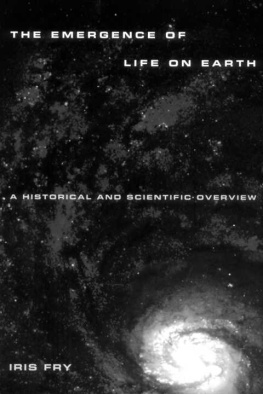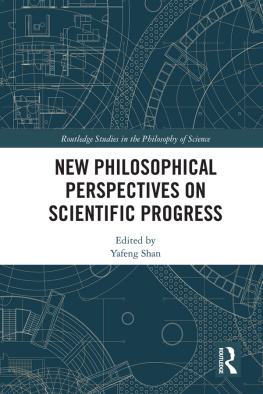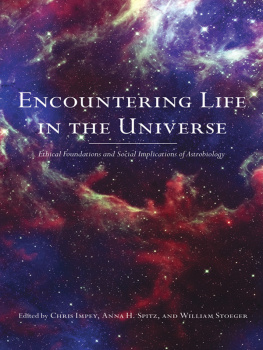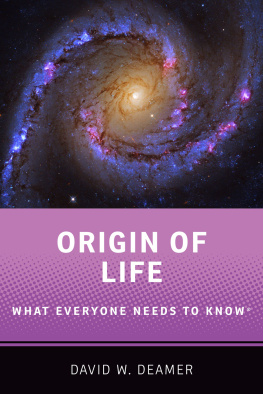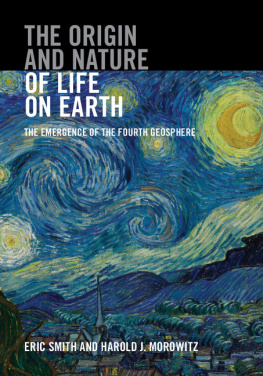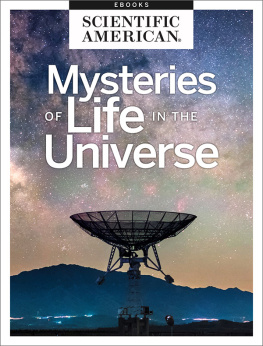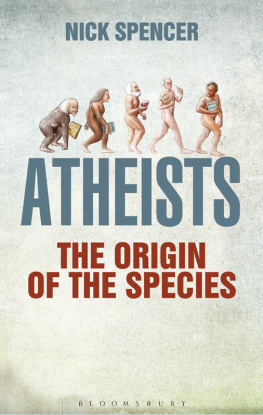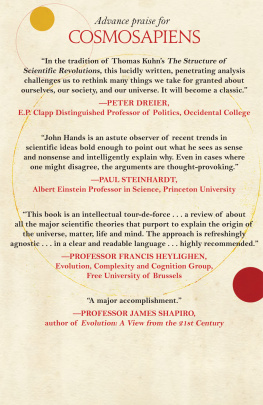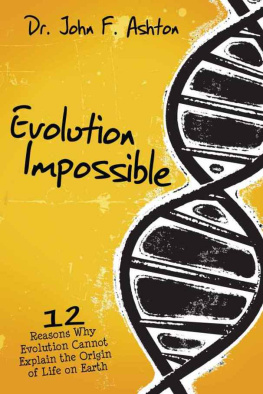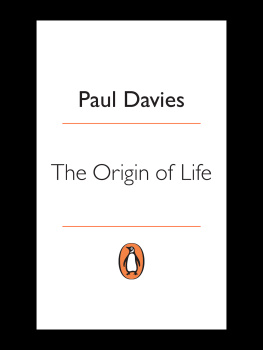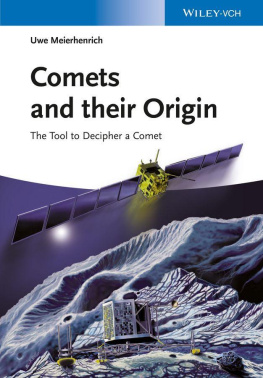The Emergence of
Life on Earth
THE EMERGENCE
OF LIFE ON EARTH
A Historical and
Scientific Overview
IRIS FRY



To my family, with love
Contents
Acknowledgments
Parts of this book are based on my book, in Hebrew, The Origin of Life-Mystery or Scientific Problem? published in 1997 by the Broadcast University Library of the Ministry of Defense Press, Israel. I wish to thank the Israeli publisher for granting me permission to use the Hebrew material, which served as stimulus for the writing of this volume.
I am indebted to my friend Marcella Benditt, whose profound command of the English language and remarkable editorial skills helped to shape the form of this book. Her enthusiasm for the book was invaluable.
Adam Rabinowitz's skillful preparation of some of the illustrations is gratefully acknowledged.
Thanks are due to Helen Hsu, my editor at Rutgers University Press, for her help and encouragement.
Last but not least, thanks to my friend and husband, Mickey, without whom this book would not have been possible.
The Emergence of
Life on Earth

Is there life on other worlds? Can we search for it within our solar system and beyond? How similar is extraterrestrial life to life on Earth, and are we bound to find life only as we know it? These questions, until not long ago confined to the pages of speculative essays and to science fiction books and tabloid headlines, are now the legitimate subject matter of extensive scientific research. Recent discoveries of extrasolar planets and the tentative indications of life on other celestial bodies have drawn public attention also to the question of the emergence of life on Earth. This interest is but the latest stage in a long historical drama. For hundreds of years the origin of life was thought to be well understood and did not pose any problem to naturalists and lay persons alike. Interestingly, doubts began to rise with the growth of biological knowledge, and the question became a complete mystery, especially at the end of the nineteenth and the beginning of the twentieth century. It is only in the last decades that the emergence of life on Earth has entered the realm of investigation as a scientific problem.
This book will trace these developments, including a detailed discussion of current lines of research devoted to the origin of life. Unlike most other writers who have addressed this topic, I examine it from a combined scientific, historical, and philosophical perspective. The first part of the book is historical, offering an overview of the development of the main ideas about the origin of life from antiquity to the present century. The second part, which is much more detailed, examines the major prevailing scientific theories of the origin of life. Since this book is intended for readers interested in science, and since in many cases there is a "division of interests" between science-oriented and history-oriented readers, the question, Why bother at all with history? has to be addressed. Why, indeed, not discard the first, historical part, get straight to the point, and discuss what we know, and do not yet know, about the emergence of life on Earth? Though an impatient reader can jump right into the twentieth century in chapter 6, there are several important reasons for a historical examination of the subject. First, as I hope to show, it involves an interesting story, full of anecdotes and what to our eyes are rather strange and surprising beliefs. Second, the tendency among some scientists to focus on the "here and now" and to ignore older ideas goes against the grain of science itself. Scientists fully appreciate the role of historical developments in the realms of physical and biological reality. However, they sometimes fail to appreciate that our concepts likewise do not materialize out of thin air, but owe their origin and character to past developments, both successes and failures. The ties that connect present ideas on the emergence of life to older traditions will be described in the book.
In addition to the previous reasons justifying a historical examination, even a brief presentation of the history of ideas about the origin of life can serve to illustrate the many factors that shape our evaluation of nature. Attitudes toward the problem of the emergence of life have always been determined by observations and experiments and also by philosophical, religious, and political factors. My historical analysis demonstrates that the examined facts themselves, as well as common sense, were conditioned by many nonempirical presuppositions. Hence, not only did different beliefs depend each on its own conceptual framework, but the overturn of these beliefs did not result necessarily from empirical refutation. The willingness to consider empirical results that seemed to refute a previously held theory depended also on extra-scientific factors. The lesson learned from examining past ideas should help enlighten us about the role of philosophical and religious preconceptions in the controversies currently surrounding the origin-of-life issue. It might also lead us to reexamine the role of cultural and social factors in the working of science in general.
Throughout human history, naturalists, philosophers, and lay persons alike have been preoccupied with and fascinated by the subject of the emergence of life. It might come as a surprise to some readers to learn that for most of history, the origin-of-life question was phrased very differently from the way it is formulated today, not focusing at all on the ancient Earth. The general belief was that many forms of life kept originating constantly in a process called "spontaneous generation," not from any parent, but directly from inorganic and organic matter. The belief in spontaneous generation was so widespread and common as to be shared in different eras by people of very different philosophical inclinations. It was backed, throughout the ages, by both materialistic and religious arguments that stemmed from people's differing perceptions of the relationship between inanimate matter and life. Historically, the doctrine of spontaneous generation died a slow death, especially as far as the spontaneous generation of microorganisms was concerned. It was finally abandoned toward the end of the nineteenth century, following several scientific and philosophical developments that will be discussed in this book, most notably the famous experiments of the French scientist Louis Pasteur.
Alongside the doctrine of spontaneous generation, and sometimes in conflict with it, there reigned for many centuries the belief in the separate divine creation of the biological species and their unchanging existence since creation. It was Charles Darwin's theory of evolution, published in 1859 in The Origin of Species, that challenged the belief in separate creation. Darwin made a very convincing case, on the basis of a vast amount of data, for the claim that the biological species developed one from another in the course of the Earth's history. The revolutionary significance of his theory stemmed mainly from the mechanism of natural selection, which he offered as the major explanation for the facts of evolution. The revolutionary philosophical implications of natural selection lay in the option, now made possible, to replace the former explanations of living nature based on divine design with explanations based on natural, material processes.

